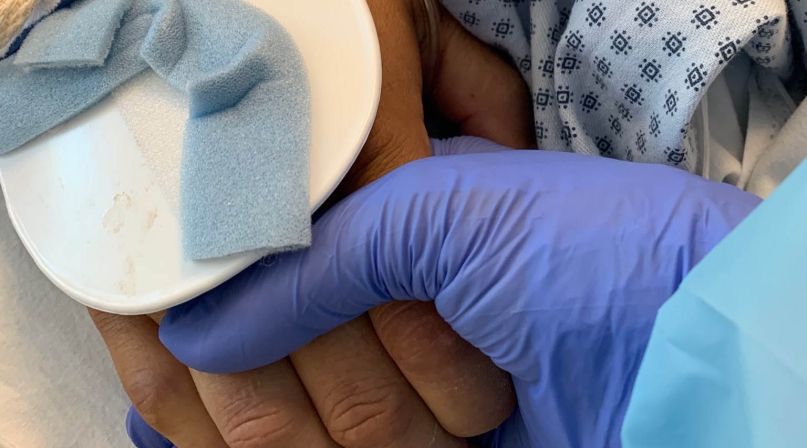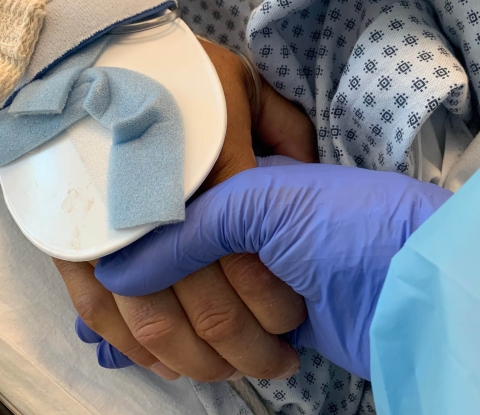Responding to COVID-19 in the county workforce
Author
Upcoming Events
Related News

With the United States reaching over 4 million confirmed cases of COVID-19, county departments are facing impacts when their own employees test positive.
In Alameda County, Calif., around 50 employees within the sheriff’s office have confirmed cases of the virus as of July 22, according to Public Information Officer Sergeant Ray Kelly.
The Alameda County Sheriff’s Office has 1,600 employees with around 1,000 badge personnel and 600 professional staff.
“We’re in the midst of basically our second surge of COVID in the last few weeks,” he said, adding that the office is seeing many asymptomatic cases.
Kelly said he is expecting that number to rise after massive amounts of testing and antibody testing for employees.
“I think that’s where we’re seeing some of the increase,” he said. “We know the more you test, the more you’re going to see, and I think that’s probably why we’re seeing more asymptomatic-style type cases.”
Back in June, deputies and personnel were deployed to protests and civil unrest following the death of George Floyd, Kelly said.
At the end of the month, the office began to see a surge in the number of employees who tested positive with around 35 reported cases. Before the summer, the agency had two employees test positive for the virus.
Prior to July, there were no fatalities among county employees because of the virus, but on July 23, Deputy Sheriff Oscar Rocha, a 25-year veteran of the sheriff’s office, passed away from COVID-19 complications.
“He represents what’s great about county employees and law enforcement county officers that serve their county,” Kelly said.
The sheriff’s office is encouraging employees to get tested, Kelly said. Office policy dictates that employees stay at home for two weeks if they come in close contact with someone with the virus.
At some points, 60 to 70 employees were off work because of possible COVID-19 exposure, he said.
“That obviously presents challenges as well in backfilling those hours and those positions during a time when the supply of personnel dries up and the demand is high,” Kelly said.
He explained how all county employees received 180 hours of COVID leave that can be used for any pandemic-related situation.
In Horry County, S.C., 33 employees have currently tested positive for COVID-19 as of July 17, Director of Public Information Kelly Moore said.
As of the same date, 46 employees were working remotely or utilizing medical leave because of possible exposure or for a test. The county has seen 86 positive cases in total among county employees since March.
Moore said the county saw positive cases as early as March, but numbers were initially low.
If an employee has been exposed to a positive case, the county’s protocol requires the employee to either quarantine for 14 days or receive a COVID-19 test.
“The guidance has changed somewhat since the spring, so we’re continuing to be in touch with both our state health agencies and of course CDC guidance is updated to determine what those appropriate amounts of time are and following the guidance of those medical professionals,” Moore said.
Employees throughout different county departments have tested positive. The county’s offices are open to the public with precautions implemented such as wearing face coverings and gloves. County residents are encouraged to do business online or make appointments for meeting in person.
Similar to Alameda County, Horry County implemented two weeks of COVID leave beyond an employee’s vacation and sick time. The 80 hours can be used for time off related to the coronavirus.
Moore said the county wanted to be transparent with employees and started sending weekly update emails that outline the number of employees who are currently out of work to be tested, the number of employees who have tested positive and not reporting to work and the number who have tested positive and recovered. The information is broken down by department.
“We send the [numbers] to the media after we send them internally to our employees so that folks understand that there is no risk-free area and we really need everybody to take the precautions to help stop the spread in our community,” she said.
To help boost employee morale at the Alameda County Sheriff’s Office, Kelly said the sheriff has been creating weekly update videos for the last 18 weeks. For the videos, the sheriff visits different locations throughout the county to interview employees.
“It makes employees feel that the work they’re doing is validated in that they’re contributing so it’s a great way to keep morale strong and set a good tone,” Kelly said.
The videos also include statistical data with graphs and charts containing information about the virus while emphasizing the hard work of county employees.
“I think it takes a lot of courage to do law enforcement in general,” Kelly added. “But I think to do law enforcement in an environment like this where you know you could go home and bring this virus back to your family or your loved ones and you take that risk every day on top of the other risks that you take, I think that really has shown us the quality and the character of the people who work for us.”

Attachments
Related News

Professional Development Academy and National Association of Counties launch expanded partnership to support local government leaders
Professional Development Academy and NACo expand their partnership to train 10,000 more county leaders, equipping officials with critical leadership and tech skills.

